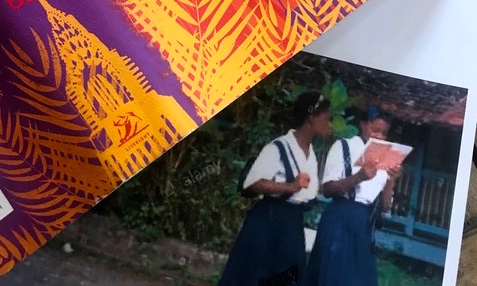Anchored by a complex, often deeply unsympathetic, occasionally impenetrable titular character, Patsy, a flawed but compelling novel by Nicole Dennis-Benn, is radical in its very telling: it is the story of a woman from Jamaica who abandons her daughter to follow her lover and best friend to Brooklyn. This gay, Black, undocumented immigrant defies stereotypes in her guilty, defiant desire to be free. Patsy, a brilliant math student and government employee, flees to America with a coveted visa she has obtained because of her child left behind; ironically, she ends up working as a nanny to one privileged white family after the other. The book moves back and forth both in time—teasing out memories of Patsy’s love for the glamorous Cicely; her childhood replete with abuse and poverty; her relationship with Roy, the father of her child, Tru; and of the mysterious traumas she has sustained that have scarred all of them, figuratively and literally—and also alternates chapters between Patsy struggling in Brooklyn and Tru, forsaken in Jamaica.
Patsy’s decision to leave and then not to contact Tru for ten years shapes both of them as they struggle separately to stay afloat in places that are hostile to their very existence: Patsy is filled with self-loathing even as she fights to keep despair at bay and to feel worthy of the love she desires; Tru’s pain mirrors her mother’s as both are rejected by the most important person in their lives. Her prowess at soccer gives her solace though her rejection of a feminine identity brings her fresh trouble. In one of the many heartbreaking disconnections of the book, Patsy spends years filling a barrel to send home to Tru with all of the pink and sparkly detritus she imagines a daughter might love while Tru binds her chest, cuts off her hair, and fervently wishes to be a boy.
Dennis-Benn creates layered characters who are never only one thing: Patsy’s mother is a religious zealot but also a concerned grandmother; Roy can be a cruel father and unfaithful husband but also an accepting and encouraging support for Tru; the local criminal uses his reign to both control and to support the impoverished neighborhood of Pennyfield; Patsy herself rouses our compassion, anger, frustration, and empathy. In her admirable attempt to craft real people who are imperfect, Dennis-Benn occasionally missteps as the characters swing too wildly or suddenly from mood to mood, or act in ways that don’t seem organic. The book’s pace is too often inconsistent, and the prose is sometimes melodramatic; however, the power of hearing these voices—whether in musical patois; “proper” colonizer’s English; or in the deep, private yearning for self-expression—outweighs the book’s flaws.
What does it mean be free?: “That’s what it comes down to—choice. When has she ever been given a choice? Never. She was never given the choice to say no the first time her legs were pried open, never given the choice to rid her body of the grievance she had to carry for nine months, never given a choice to look at another woman and allow herself to be carried by the feeling without blood bright red on glistening glass, sticking to her like shadow.” What does it mean to be a mother? An undocumented immigrant scraping by in the shadow of the American dream? A queer woman in Brooklyn or in Pennyfield? A Black woman anywhere? Patsy’s choices are made out of desperation, courage, selfishness, and finally, the strength to seek healing.




